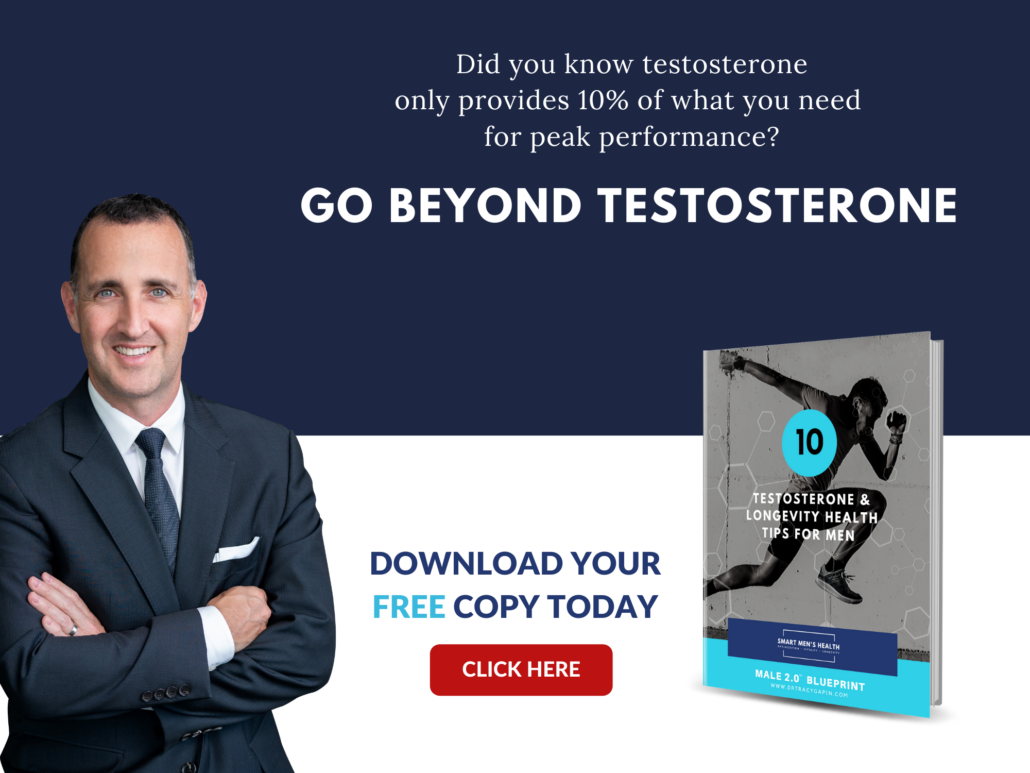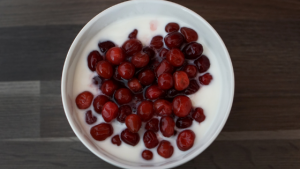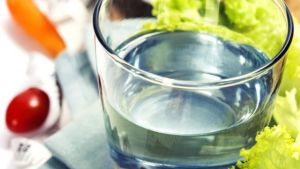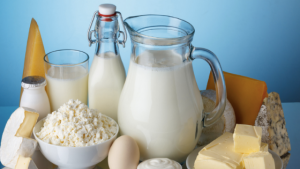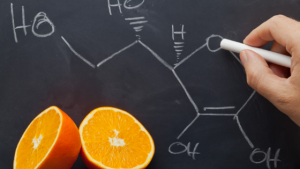
Supplements have gained popularity in recent years. People have started adding lineups of vitamins to their daily routine as a way to become the best versions of themselves. And popularity is right (this time); Supplements are the best way to ensure your body is getting the nutrients it needs in addition to your diet and lifestyle.
But you don’t want to ingest every supplement that comes your way. Taking too many supplements can actually hurt your body.
Taking the right supplements—and the right amount of supplements—is what will ensure that your body functions in a natural, healthy way. That’s why I’ve come up with a comprehensive (but concise) list of the 7 supplements you should take to optimize every area of your health.
Why Take Supplements? 
Supplements can help:
- Support the immune system
- Boost energy
- Maintain a healthy sex life
- Protect from disease
- Promote a healthy heart and brain
- Stimulate organ function
- Fight health concerns
- Improve overall well-being
Think of supplements like your daily preventative (natural) medications.
Supplements are especially important as you age because your body stops absorbing nutrients like it used to. Adding supplements to your day can help encourage your body to start functioning at peak capacity again.
So what supplements do you need to take to promote your health, wellness, and vitality?
Probiotics
Probiotics are the “good bacteria” in your gut. Your intestines are naturally filled with both good and bad bacteria. But when bad bacteria take over, disease follows suit. Poor diet, stress, pollution, toxins, and antibiotics can all reduce good bacteria, allowing the bad to run rampant.
Probiotics introduce more good bacteria into your gut to ensure a healthy balance.
What does this good bacteria do?
Probiotics help your body digest food and reduce intestinal issues, but they’re more than just stomach vitamins. A healthy gut is the key to a healthy immune system overall. In fact, research has proven that having a high ratio of good gut bacteria can actually improve your health, prevent common diseases, and strengthen your immune system.

Some proven benefits of probiotics include:
- Inflammation reduction
- Reduced gas and intestinal troubles
- Hormone balance
- Blood sugar regulation
- Enhanced nutrient absorption
- Lowered instances of infection
There’s also a strong connection between the brain and gut, which is often referred to as the brain-gut axis. Basically, your brain affects your intestines and vice versa.
Think about when you get butterflies in your stomach when you’re nervous—like when public speaking or going on a first date. Your brain is signaling your digestive tract, which then manifests this discomfort as an upset stomach. The same works in reverse as well since a bad gut can actually impact your head health, often leading to headaches, fatigue, inability to reason, and mood disturbances.
Learn more about probiotics with my article: 10 Reasons Men Over 40 Should Take Probiotics.
You can get probiotics from fermented foods like yogurt, tempeh, sauerkraut, kefir, and kimchee. But you might get tired of sauerkraut every day, so I usually recommend a probiotic supplement. Find a probiotic pill that offers somewhere between 10 and 30 billion live bacteria. The most common types of probiotics are Lactobacillus and Bifidobacteria—so search for these in the health food supplement aisle.
Dosage: Daily supplement with 10-30 billion “live” bacteria.
Holy Basil
Holy basil, aka tulsi, has been used for thousands of years in Indian medicine due to its ability to soothe the mind, body, and spirit. It contains high levels of vitamin A, vitamin C, vitamin K, calcium, zinc, magnesium, manganese, and iron, which all contribute to key aspects of health and wellness.
Holy basil leaves are adaptogens, meaning that they’re recognized anti-stress agents. Holy basil reduces cortisol level, improves testosterone levels, and balances out hormone levels. Balanced hormones are crucial to overall health and wellbeing.
Read: 5 Simple Ways To Normalize Your Hormones This Week
Holy basil can also have positive impacts on serious health concerns. Some studies suggest that holy basil can assist treatment for mild to moderate non-insulin dependent diabetes. Furthermore, because of its strong antioxidant power, it may help prevent chemical-induced lung, liver, oral, and skin cancers. Studies have even found that holy basil may alter healthy gene expressions, induce cancer cell death, and stop cell growth!
Moreover, holy basil is antibacterial, which means it helps to fight off infections both internally and externally. Holy basil’s antimicrobial properties make it a natural treatment for acne. Other studies have shown these properties make it a viable treatment for bronchitis and respiratory disorders as well. Holy basil also has slightly sedative properties, which helps naturally remedy headaches and head tension.
Dosage: Daily 600 to 1800mg.
Vitamin D
Vitamin D plays an important role in bone, immune, muscle, cardiovascular, respiratory, and brain health.
A deficiency in vitamin D can lead to inability to fight infection, fatigue and malaise, depression, diabetes, heart disease, and erectile dysfunction. Unfortunately, a majority of Americans have a deficiency in vitamin D. Nearly three-quarters of all U.S. teens and adults are deficient in this crucial “sunshine vitamin.”
So you need to supplement vitamin D to start seeing its effects.

Vitamin D is an anti-inflammatory antioxidant. That means it can help:
Vitamin D isn’t like other vitamins that you can get easily through your food. The highest absorption of vitamin D is actually through sunlight. Your body turns sunlight into vitamin D that it can use for healthy energy function. If you’re not getting enough sunlight or you don’t want to risk burns and skin cancer (good call!), then daily vitamin D supplements are the way to go.
Dosage: Daily 2,000 to 4,000 IUs vitamin D3
Vitamin C
This super antioxidant is used to create healthy connective tissue in the body. Vitamin C is a key component in collagen formation, which keeps your skin, tendons, and blood vessels young and vital. That’s right, vitamin C can also help prevent damage to the blood vessels—which can also help prevent erectile dysfunction!
Vitamin C is most commonly known for its immune-boosting benefits. This is especially true for those who have a weakened immune system due to stress or poor diet. Boosting your vitamin C intake is a great way to build your body’s natural defense against colds, flus, and other diseases.

You can find vitamin C in a lot of delicious food sources, like guava, red and green peppers, kiwi, oranges, strawberries, papaya, kale, broccoli, pineapple, grapefruit, brussels sprouts, and mangos. But if you’re not getting your full servings of fruit and vegetables daily, vitamin C supplementation is a must.
Taking a daily vitamin C supplement will improve your immunity and help your body naturally detox. If you feel like you’re about to get hit with a cold or flu, start taking 1,000 to 2,000 mg of vitamin C to zap the bacteria fast.
Dosage: Daily 500 to 1,000mg
CoQ10
CoQ10 is crucial for transforming food into energy, and it provides key energy to nearly every cell in the body. Thus, energy-dependent tissues like the heart and brain have especially high requirements for coenzyme Q10. A deficiency, then, could be detrimental to the longevity of your life.
CoQ10 is proven to help improve heart function—and even help the heart heal after valve surgeries. It can also reduce the frequency of migraines and improve Parkinson’s symptoms. Plus, CoQ10 has been linked to an increase in male fertility!
Overall, a high level of CoQ10 has been shown to help slow the progression of aging signs in the body.
Your body naturally produces coenzyme Q10 (CoQ10), but this production tends to decline with age. Some fish, meats, and grains have CoQ10, but not enough to help your body produce more. A small supplement can have tremendous effects.
Dosage: Daily 30-90mg

Fish Oil
Omega-3 fatty acids like DHA and EPA have proven results for overall health and wellbeing. Some studies have “disproven” the benefits of fish oil, while others have concluded that fish oil is the ultimate in health. The results are still a bit up in the air.
However, I believe in the power of fish oil (as much as I believe in the Mediterranean diet). If you want to be healthy, you need the benefits that come from clarifying and detoxifying fish.
Fish oil has been shown to:
- Promote a stronger immune system
- Encourage heart health and cardiovascular function
- Improve joint and vision health
- Enhance nutrient absorption
- Sharpen the brain
- Reduce anxiety
- Dissolve depression
- Fight chronic inflammation
Some research even suggests that fish oil can help prevent certain types of cancer.
Fish oil can also promote metabolic function. This means it can help your metabolism break down food and turn it into energy. This is crucial for maintaining a healthy weight and balancing hormones. In fact, fish oil has been shown to decrease body mass index and improve cardiovascular function along with aerobic exercise. Reduced weight leads to a reduced risk of disease.
Learn more about metabolic syndrome and the role of metabolism in your health here.
You can get omega-3s from cold-water fatty fish, like salmon and mackerel. However, this is often not enough to get the full benefits your body craves. Taking a daily fish oil supplement can get your body looking and feeling amazing again!
Dosage: Daily 2-3g of combined EPA and DHA
Multivitamin
You should also be taking a multivitamin daily. The right multivitamin can fill in any nutrient gaps to ensure your body has all the goodness it needs to function properly.

Your multivitamin should include any and all of the above supplements—as well as other nutrients like vitamin E, vitamin K, vitamin A, vitamin B complex, magnesium, and potassium. Beyond that, your multivitamin should include a blend of amino acids, which are essential to daily functioning. I recommend looking for amino acids glutamine and BCAAs, which help build muscle and improve testosterone levels.
What should you look for in your multivitamin?
You want only vitamins—no extra “stuff.” I look for products that contain no soy, dairy, gluten, sugar, sodium, or artificial additives. Any inactive ingredients can have side effects that can actually hurt your body, rather than help it.
Some of my favorite men’s multivitamins include:
Nature Made Multi For Him
This has vitamins E, C, A, and D along with selenium and manganese. This vitamin even gives you over 100% of vitamins C, D, and E—which can help cut down on the number of pills you’ll have to take per day to stay healthy.
GNC Mega Men Sport
This supplement has high levels of vitamin A, vitamin D, thiamin, zinc, and a branched chain amino acid blend. When taken with the other six supplements on this list, your body will feel more active and alive than ever. Plus, it helps raise your iron levels—which is necessary for energy and blood health.
Centrum Silver Men 50+
This is a great formula for anyone, whether or not you’re over 50. It has vitamins D, B12, A, and E along with manganese and lycopene. It promotes heart, health, eye, and muscle health—in just one pill!
I’m not endorsing these vitamins above. I just find they cover a lot of ground. Talk to a doctor (psst… I’m a doctor you can talk to) to come up with the perfect multivitamin blend for you!
The Bottom Line
Eating a balanced, healthy diet of protein, vegetables, fats, fruits, and carbs helps your body get the nutrients it needs to thrive. However, augmenting with additional supplements will ensure that your body always has the appropriate amount of energy and nutrients to work with optimal function.
But how do you know which supplements are right for you?
You’ve read through this article because you want to feel the best you possibly can, right?
In fact, I bet you want to feel the best you’ve felt in years… or maybe EVER.
You want to have a healthy lifestyle—without giving up the things you love.
Thankfully, you can.
And you will…
CONCLUSION
It’s time to get empowered to take control of your health. Unlock the code to peak performance with the Male Method™ to regain your energy, focus and confidence to feel like a man again.
We take a whole-body, epigenetic approach to health, focusing on all inputs and how they affect the human system. With the Male 2.0 Method, we utilize science-based precision medicine, personalizing your health based on your unique genetic blueprint. No more guessing!
We utilize cutting-edge age management protocols to reverse the aging process and expand longevity. And we track and leverage your biometric data using state-of-the-art wearable technology to truly optimize your health.
Ready to take the next steps?
Schedule a Call
**************************
 In Male 2.0™, Dr. Tracy Gapin has turned everything we once thought we knew about men’s health and performance upside down. The old model of how to be “a man” is broken. A man who works himself to death. Unfortunately, a man who tries to NOT get sick but isn’t really healthy either. And a man who takes a pill for every ill but is never really cured. That was Male 1.0. Now, imagine being THE MAN ─ owning your performance in the bedroom, the weight room, and the boardroom. Living a fully optimized life. Becoming limitless. This is Male 2.0!
In Male 2.0™, Dr. Tracy Gapin has turned everything we once thought we knew about men’s health and performance upside down. The old model of how to be “a man” is broken. A man who works himself to death. Unfortunately, a man who tries to NOT get sick but isn’t really healthy either. And a man who takes a pill for every ill but is never really cured. That was Male 1.0. Now, imagine being THE MAN ─ owning your performance in the bedroom, the weight room, and the boardroom. Living a fully optimized life. Becoming limitless. This is Male 2.0!
Tracy Gapin, MD, FACS is a board-certified Urologist, world renowned Men’s Health & Performance Expert, Author, and Professional Speaker. Using state-of-the-art biometric monitoring, nutrition and lifestyle intervention, Dr. Gapin coaches Fortune 500 executives and evolutionary leaders of business, sports medicine, and high performance. He specializes in cutting-edge precision medicine with an emphasis on epigenetics, providing men with a personalized path to optimizing health & performance. www.GapinInstitute.com
Want more tips to optimize your health? Listen to the latest podcasts. Click HERE
Disclaimer: Always consult a doctor before starting a supplemental regimen. Some supplements can interact with diet or medications (especially blood thinners), so you should first ensure that your combination of meds would not put you at risk.


